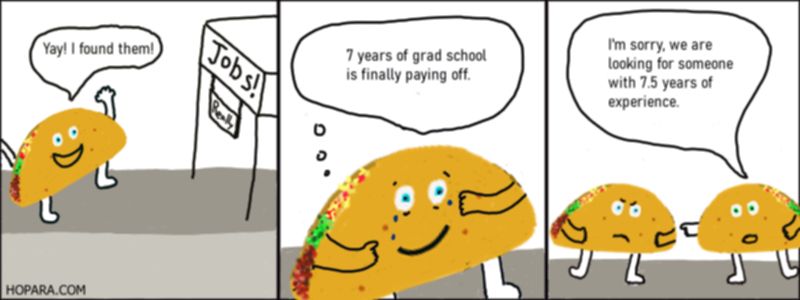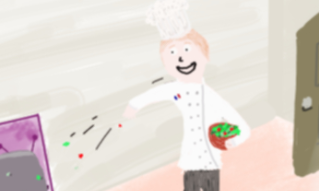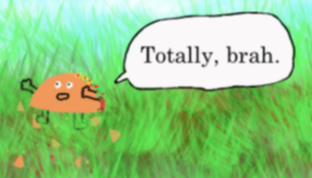Goals vs Process
Thanks for visiting! Subscribing is free – ad free, personal-tracking free, everything-free, and it unlocks the weekend posts as well (they are usually my best stuff). Plus, I jump for joy every time I get a new subscriber... which means I've been jumping a lot lately. And, really, this is free: I have a career that gives me the time to do this out of love, and the only stuff people pay for is my book(s).
I like Dilbert comics.
I detest Scott Adams, the creator of Dilbert, because he believes in things that are pretty much the opposite of what I believe in... except in one place, which I'll get to below.
Most of his writing today is about spreading anger.
The headline from today on his blog includes, "Bad diet makes your kids mentally ill," which disgusts me to my core, starting with calling it mental illness and before you even get to his totally unreliable, inaccurate and hateful skew on available information.
However, he also believes that systems are more important than goals. Here's a bit of what he wrote about this in 2013, when my kid was all of a month old:
Studies have shown that if you use your willpower resisting one temptation you have less in reserve for the next. The systems approach to weight management is to gradually replace willpower with knowledge...
He goes on to write about how goals are finite and therefore limiting, while systems are adaptable.
This, I agree with.
It's pretty easy to discern what kinds of systems he uses for his own career – his playbook matches the one outlined in The Hype Handbook, leaning heavily on the parts about picking an enemy (which, scrolling through his recent posts, seems to be almost everyone that isn't Scott Adams), the parts about using scientific words (in his case, with a not-passable understanding of the underlying science), and the parts about saying things authoritatively, with simple enough language for others to repeat.
That, plus he practices, which means he works on things daily.
In his strip, he follows a similar playbook: bosses are all inept and bad, co-workers are lazy or angry, and the chain of command is evil. These are all groups that people are predisposed to hate, and so it's pretty easy to rally readers around it. His books are about rallying people against stupid people (again, I'm pretty sure this encompasses everyone who is not Scott Adams).
Watching Adams work in public is a lot like watching Darth Vader run a preschool: there are tools there that can be used for good, but they're not being used that way.
This is hard for me, because I'm a huge believer in both daily practice and systems. This blog, where I write and draw something every single day, is an example of that. Exercise, when I'm not injured, is another example. Going outside for a little bit every day. All of these are small daily practices.
And systems? I call it processes, which is less grandiose, and more in line with how I think about actual systems: as things where small parts of it can be swapped out to improve the overall outcome. I don't really try to improve the whole – decades in corporate America have taught me that's a sucker's bet – and instead go for small parts, informed by a daily practice and then documented somewhere.
I've learned that documentation is the key to any process, which is probably a shock to the people who have worked with me over the years. Every real process needs a recipe, though.
The process for this blog is:
- Sit down to write or draw every day. It doesn't matter if you start with a drawing or writing, but you have to set aside time before 8pm to do this. You don't need to have a plan for what you want to write or draw, but it helps you if you do.
- Write / draw stream-of-consciousness style, knowing you'll edit it later (unless you pass out, but you probably won't do that because people will write you and tell you that your writing suffered)
- Finish one of the two main parts, writing or drawing, before you walk away and take a break.
- Come back and finish the part you didn't do.
- Scan your emails and a few sites for random stuff to put in the neato section if you didn't flag that earlier.
- Edit the post, create thumbnails, and set it to publish at 5-something in the morning so you can see if there's a mess-up when the cat wakes you up around 530-545am.
At book fair today, I had a process for opening it up before the first kids arrived based on yesterday's hour-long crapfest, and I cut the time down to about 25 minutes. Tomorrow, I think I can get it down by another 10 or so, even if I'm solo like I was this morning. That process is all about efficient storage of the giant tippy bookshelves, one of which blew over in the wind today.
So I find myself in this place where I agree with the first person I heard talk about processes eating goals for lunch. Most goals are de-motivating to me rather than motivating and, when I first read that article from Adams, I really embarked hard on daily practice of whatever it was I wanted to do. Scott Adams was that influential for, which is what makes the fact that I hate what he stands for elsewhere so difficult.
I probably wouldn't even draw as much as I do if it wasn't for him; after college and the time people broke into my house, rifled through paintings I made and didn't steal a single one, I hadn't really drawn or painted much. It was encouraging to see someone who was also viewed as having a lack of real talent make it.
How do I reconcile these two things? I recognize that I can like small parts of his work while disliking him. I don't spend money on things he makes. I turn off ads and trackers on any site I know he owns. And, for the most part, I forget that he exists, except on days like today, when I was listening to a podcast about BHAGs (big hairy audacious goals) and thinking about how the podcaster really missed the mark on it, because long-term goals aren't useful for much in my book.
So I'm making my own workplace comic today. And what's better than a workplace cartoon? Obvi, tacos in the workplace:

Other neato stuff
If you're not familiar with Dorothy Parker, you're in for a treat in this list of her quips that you can apply to any part of your life. Here's one from the list that probably applies to my posts some days:
“There’s a hell of a distance between wisecracking and wit. Wit has truth in it; wisecracking is simply calisthenics with words.”
And I couldn't resist this funny one:
The Genetics Fairy from webcomics
That's it for today! As always, thanks for reading, and reply to this email (if you're a subscriber) with thoughts, questions, likes, dislikes, and so on.
This get sent to you, or your first time browsing? Made it here a few times? Subscribe for free to get these sent your inbox





